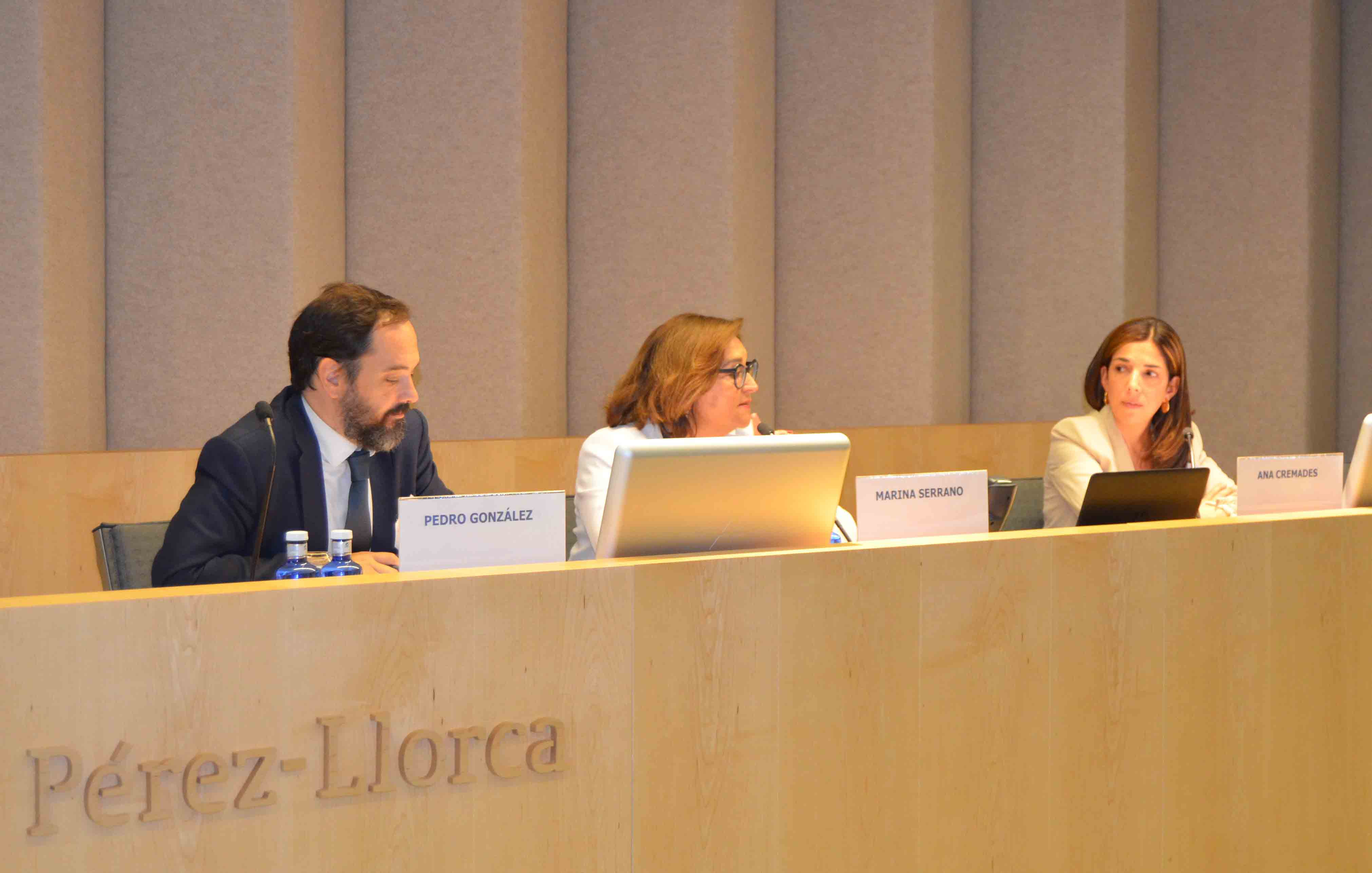These drafts include the proposals for the new methodologies for calculating the remuneration rate for electric power transmission and distribution; and the remuneration of the activities of transmitting and distributing electric power.
Pérez-Llorca recently held an event on the “New framework for the remuneration of regulated activities in the electricity sector: analysis of the CNMC’s draft policy circulars,” with the participation of Marina Serrano, Of Counsel in the Public Law and Energy practice at Pérez-Llorca and State Advocate on leave of absence; Ana Cremades, Counsel in the firm’s Public Law and Energy practice and also a State Advocate on leave of absence; and Pedro González, Director of Regulation at the Association of Electric Power Companies (“AELEC”).
The speakers commented on the content of and the main changes introduced by the CNMC’s draft policy circulars, which affect the remuneration of regulated activities in the electricity sector, and that are a result of the CNMC being given the power to implement the requirements arising from EU law by Royal Decree-Law 1/2019 (“RD-Law 1/2019”).
Marina Serrano introduced the event. She focused on the development of the framework for the remuneration of regulated activities in the electricity sector, previously provided by Royal Decrees 1047/2013 and 1048/2013, which established the methodology for calculating the remuneration of the activity of transmitting and distributing electric power respectively. Among other topics, she explained that this policy established six-year regulatory periods for the first time, with the first of these periods ending now. She also highlighted the technical complexity of this legislation, whose structure has been the subject of frequent litigation with operators as well as various damaging proceedings, which are currently before the Supreme Court.
With regard to the next regulatory period, 2020-2025, Serrano noted that we are experiencing a moment of change, in which remuneration of the networks will play a key role in the framework of the energy transition needed to achieve the decarbonisation objectives that Spain has pledged to meet. In her view, it plays an essential and decisive role in attracting the investment needed, through a stable and predictable regulation that allows the network to fulfil the role that is needed to ensure mass uptake of renewable energies and new uses of electricity.
Ana Cremades then explained the legal content of the three draft policy circulars that will fundamentally define the framework for the remuneration of regulated activities in the electricity sector. In particular, she outlined the main changes to the framework for the remuneration of the activities of transmitting and distributing electric power.
Cremades also pointed out that RD-Law 1/2019 not only transferred the powers to the CNMC, as prescribed by EU Law, but has also created a Cooperation Commission as a new mechanism for coordination between the CNMC and the Ministry for Ecological Transition (“MITECO”) in instances where the latter issues a report considering that a draft policy circular is not in line with previously adopted energy policy guidelines.
Cremades also analysed the reports issued by the Ministry for Ecological Transition, which assess how the circulars measure up to the energy policy guidelines and request that the Cooperation Commission be convened.
Pedro González concluded the session by considering the framework for the remuneration of regulated activities in the electricity sector proposed in the draft policy circulars from a technical point of view. González focused on the expectations of private operators with respect to the regulator, and stressed the need for the regulation to be perfectly aligned with the context of the decarbonisation of the energy sector.
In his opinion, “on the other side of decarbonisation is the network, because without it, change is not possible; the network should facilitate electricity consumption so as to ensure supply.”
The session served as a meeting point to discuss the main changes contained in the draft policy circulars and the major impact on legal security in the sector.
Marina Serrano also mentioned that this process is completely new, since it is the first time that the CNMC is going to approve, through circulars, the methodology for calculating the remuneration of regulated activities, and implement the mechanism provided for in RD-Law 1/2019 in relation to the Government’s energy policy guidelines and the convening of the Cooperation Commission.
In this context, the speakers shared their thoughts on legal security in this field in light of the changes introduced by the draft policy circulars. As stated by Serrano, this is not only because establishing a regulatory period of six years provides the visibility investors need; but also because, as noted by Cremades, RD-Law 1/2019 introduced legal certainty by defining the scope of the regulator, thereby putting an end to the existing conflicts between the MITECO and the CNMC.
